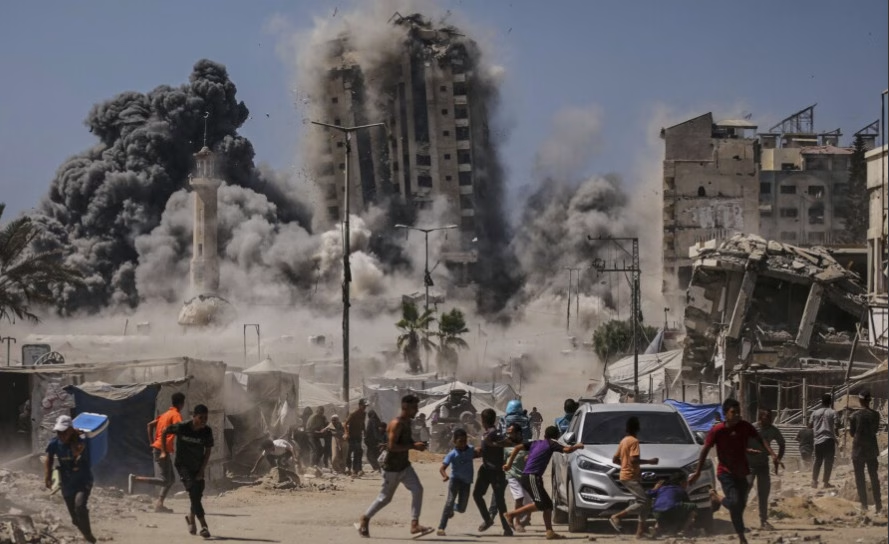The Israeli military urged residents of Gaza City to evacuate southward on Saturday as its forces continue their advance into the city, which is the largest urban area in the Gaza Strip.
For weeks, Israeli forces have been intensifying their assault on the northern outskirts of Gaza City after Prime Minister Benjamin Netanyahu gave the order to seize it.
Netanyahu has stated that Gaza City is a key stronghold of Hamas and that its capture is essential to defeating the militant group, whose attack on Israel in October 2023 ignited the ongoing conflict.
The military action threatens to displace hundreds of thousands of Palestinians, many of whom have already sought refuge in the city after fleeing other areas earlier in the war. Gaza City, which before the war had a population of about one million— nearly half of Gaza’s total population—has seen widespread displacement and destruction.
Avichay Adraee, Israeli military spokesperson, posted on X, advising those in Gaza City to relocate to a designated “humanitarian zone” in southern Gaza, around Khan Younis, where they would have access to food, medical care, and shelter, reports agencies.
The military had announced on Thursday that it now controls almost half of Gaza City, and about 75% of the entire Gaza Strip. Despite this, many residents of the city, some of whom had already been displaced earlier in the war, are reluctant to leave again.
Israeli military have conducted sustained airstrikes on Gaza City, pushing through the outer suburbs and coming within a few kilometers of the city center.
Netanyahu, supported by right-wing coalition members, has insisted on the capture of Gaza City, according to Israeli officials, disregarding the advice of the Israeli military leadership. Despite some reservations, the military has mobilised tens of thousands of reservists to support the operation.
The war has increasingly isolated Israel diplomatically, with some of its closest allies condemning the assault that has devastated Gaza.
After Hamas’ cross-border attack in southern Israel on October 7, 2023, taking 251 hostages and killing nearly 1,200 people, Israel believes that 20 hostages are still alive in Gaza.
According to local health authorities, over 64,000 Palestinians have been killed in Gaza, with much of the area in ruins and facing a severe humanitarian crisis.
There are growing calls within Israel for a diplomatic solution, particularly from the families of hostages, who are pushing for a deal that would secure the release of the remaining captives. However, Netanyahu remains steadfast in his position, demanding an all-or-nothing deal where all hostages would be released at once, and Hamas would surrender.
Israeli officials claim they have killed many of Hamas’ senior leaders and thousands of fighters, severely weakening the group and reducing it to a guerrilla force. Hamas has offered to free some hostages in exchange for a temporary ceasefire, before negotiations mediated by the US and Arab states in July collapsed.
US President Donald Trump mentioned on Friday that Washington is engaged in “very deep” talks with Hamas.
While Hamas, which has governed Gaza for nearly 20 years but now controls only parts of the territory, insists it would release all hostages if Israel agrees to end the war and withdraw its forces, both sides have accused each other of bad faith negotiations since the failure of talks in July.
On Friday, Israel’s Defense Minister, Israel Katz, reaffirmed that military operations would intensify until Hamas agrees to Israel’s demands for peace: releasing all hostages and disarming, or facing complete destruction.


